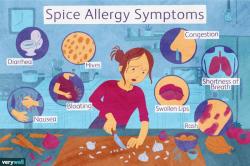What are the causes of an enlarged lymph node?
Enlarged lymph nodes, also known as lymphadenopathy, can be caused by a wide range of factors. Lymph nodes are part of the body's immune system and can become swollen or enlarged as they respond to infections, inflammation, or other immune system-related conditions. Here are some common causes of enlarged lymph nodes:
Infections: Infections are the most common cause of lymph node enlargement. Bacterial, viral, and fungal infections can trigger the body's immune response, leading to swelling of nearby lymph nodes. Common infections that can cause enlarged lymph nodes include strep throat, the common cold, influenza, and skin infections.
Bacterial Infections: Bacterial infections such as tuberculosis, cat scratch disease, and sexually transmitted infections like syphilis can lead to swollen lymph nodes.
Viral Infections: Viral infections like mononucleosis (caused by the Epstein-Barr virus), HIV, and some herpes viruses can result in lymphadenopathy.
Fungal Infections: Certain fungal infections, such as histoplasmosis or coccidioidomycosis, can cause enlarged lymph nodes in regions where these fungi are prevalent.
Inflammatory Conditions: Non-infectious inflammatory conditions like rheumatoid arthritis, systemic lupus erythematosus, and sarcoidosis can lead to lymph node enlargement.
Cancer: Lymphoma, leukemia, and metastatic cancer (cancer that has spread from another part of the body) can cause lymphadenopathy. Enlarged lymph nodes may be one of the signs of cancer.
Autoimmune Diseases: Autoimmune conditions like systemic lupus erythematosus and certain types of vasculitis can trigger immune responses that result in swollen lymph nodes.
Allergic Reactions: Allergies, especially severe allergic reactions (anaphylaxis), can lead to swollen lymph nodes as part of the immune response.
Medications: In rare cases, some medications, particularly anticonvulsants and certain antibiotics, can cause lymphadenopathy as a side effect.
Systemic Illness: Serious systemic illnesses, such as Kawasaki disease, can cause enlarged lymph nodes in children.
Normal Response to Infections: Sometimes, lymph nodes can enlarge temporarily in response to a recent infection or vaccination.
Unknown Causes: In some cases, the cause of lymphadenopathy may not be immediately apparent, and further diagnostic tests may be needed.
It's important to note that while many cases of lymphadenopathy are due to benign and treatable conditions like infections, swollen lymph nodes can also be a sign of a more serious underlying health issue, such as cancer. If you have persistently enlarged lymph nodes, particularly if they are painless, firm, or accompanied by other concerning symptoms, it's advisable to seek medical evaluation and diagnosis by a healthcare professional for proper assessment and appropriate treatment.
What Are the Causes of Enlarged Lymph Nodes? Unraveling the Factors
Lymph nodes are small, bean-shaped glands that play a vital role in the immune system. They act as filters, trapping bacteria, viruses, and other harmful substances before they can spread throughout the body.
Enlarged lymph nodes, also known as lymphadenopathy, can be caused by a variety of factors, including:
- Infection: Infection is the most common cause of enlarged lymph nodes. This can include infections such as the common cold, strep throat, mononucleosis, and HIV.
- Cancer: Enlarged lymph nodes can also be a sign of cancer, such as lymphoma, leukemia, and certain types of solid tumors.
- Immune system disorders: Immune system disorders, such as rheumatoid arthritis and lupus, can also cause enlarged lymph nodes.
- Medications: Certain medications, such as some antibiotics and anti-seizure medications, can cause enlarged lymph nodes as a side effect.
Infections, Diseases, and Other Contributors to Lymph Node Enlargement
Here are some specific examples of infections, diseases, and other conditions that can contribute to lymph node enlargement:
- Infections:
- Bacterial infections, such as strep throat, ear infections, and tooth abscesses
- Viral infections, such as the common cold, mononucleosis, and HIV
- Sexually transmitted infections, such as syphilis and chlamydia
- Diseases:
- Cancer, such as lymphoma, leukemia, and certain types of solid tumors
- Immune system disorders, such as rheumatoid arthritis and lupus
- Tuberculosis
- Other:
- Medications, such as some antibiotics and anti-seizure medications
- Injuries
- Allergic reactions
- Bug bites
Diagnostic Approaches and Treatment for Underlying Conditions
If you have enlarged lymph nodes, your doctor will likely perform a physical exam and ask you about your medical history and symptoms. They may also order tests such as blood tests, imaging tests, and biopsies to determine the underlying cause.
Treatment for enlarged lymph nodes depends on the underlying cause. For example, if the enlargement is caused by an infection, your doctor may prescribe antibiotics. If the enlargement is caused by cancer, your doctor may recommend chemotherapy, radiation therapy, or surgery.
Promoting Lymph Node Health and Well-Being
There are a few things you can do to promote lymph node health and well-being:
- Maintain a healthy weight. Obesity can increase your risk of developing certain types of cancer and other conditions that can cause enlarged lymph nodes.
- Eat a healthy diet. Eating a healthy diet that is rich in fruits, vegetables, and whole grains can help to boost your immune system and reduce your risk of infection.
- Exercise regularly. Regular exercise can help to improve your overall health and well-being, including your immune system function.
- Get enough sleep. Sleep is essential for a healthy immune system. Aim for 7-8 hours of sleep per night.
- Manage stress. Stress can weaken your immune system and make you more susceptible to infection. Find healthy ways to manage stress, such as exercise, yoga, and meditation.
Real Stories of Individuals Dealing with Enlarged Lymph Nodes
Here is a real story of an individual dealing with enlarged lymph nodes:
"I noticed a small lump in my neck a few weeks ago. I didn't think much of it at first, but it started to get bigger. I went to the doctor and they did some tests. They told me that I had enlarged lymph nodes and that it could be caused by a number of things, including infection, cancer, or an immune system disorder.
I was really scared. I didn't know what was wrong with me. The doctor did a biopsy of one of the lymph nodes and the results showed that I had lymphoma. I was devastated. I had no idea that I had cancer.
I started chemotherapy a few weeks later. It was a tough journey, but I made it through. I'm now in remission and I'm doing well. I'm grateful to be alive and I'm cherishing every moment."
If you have enlarged lymph nodes, it is important to see a doctor to determine the underlying cause. Early diagnosis and treatment can lead to better outcomes.











